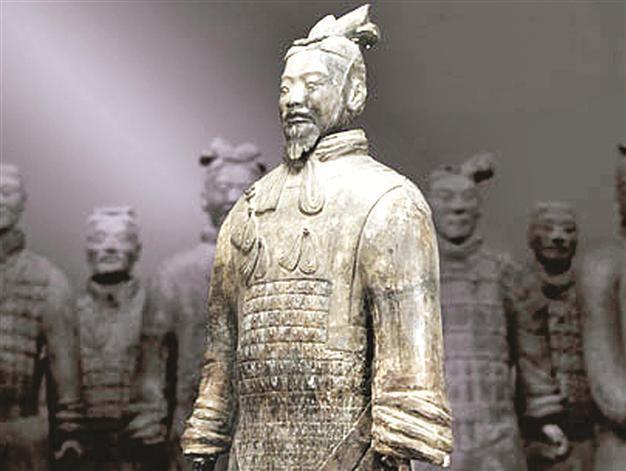China’s Terracotta Army comes to Istanbul, Topkapı
BEIJING - Anatolia News Agency

Terracotta Army is coming to Istanbul’s Topkapı Musuem on Nov 20.
The Terracotta Army, a collection of terracotta sculptures depicting the armies of Qin Shi Huang, the first Emperor of China, is coming to Istanbul’s Topkapı Palace on Nov. 20. Five terracotta soldiers will be on display at Topkapı Palace as a part of an exclusive joint exhibition approved by the Chinese government, as the terracotta soldiers are rarely sent overseas for display.
In addition to the soldiers, artwork from the Shanghai Museum and Beijing’s “Forbidden City” will be shown. A terracotta horse, which has never left China, will also be at the exhibition.
The exhibition team, which took special measures to protect the precious pieces, said a highly-priced insurance agreement was paid to bring the terracotta soldiers to Turkey. While it generally takes two or three years to prepare an exhibition of this caliber, the team said Turkish and Chinese representatives were able to prepare the display within one year.
The exhibition will bring Turkey and China closer together through cultural exchange, as Topkapı Palace is a very important museum for Turkey and welcomes some 10,000 visitors each day, the China Art Exhibitions Association vice-manager An Yao said. The museum will host the terracotta exhibition for three months as well as a display on the Dunhuang Caves.
About the Terracotta ArmyThe Terracotta Army, also known as the “Terra Cotta Warriors and Horses,” is a form of funerary art that was buried with Qin Shi Huang in 210–209 BC for the purpose of protecting the emperor in his afterlife. The figures, dating from the third century BC, were discovered in 1974 by local farmers in the Lintong District of Xi’an in Shaanxi province. The figures vary in height according to their roles, with the tallest being the generals, and include warriors, chariots and horses. In the three pits containing the Terracotta Army there are an estimated 8,000 soldiers and 130 chariots with 520 horses and 150 cavalry horses, the majority of which are still buried near the Qin Shi Huang’s mausoleum. Other non-military terracotta figures were also found including officials, acrobats, strongmen and musicians.
